The CBA’s analysis of the Stage 3 tax cuts highlighted the extent to which Australians are getting reamed by personal income taxes.
As shown in the next chart from CBA, the quarterly amount of income tax payable soared by a whopping 23.4% in the year to September 2023 (latest available data).
But over the same period, total household income grew by a much lower 7.5%:
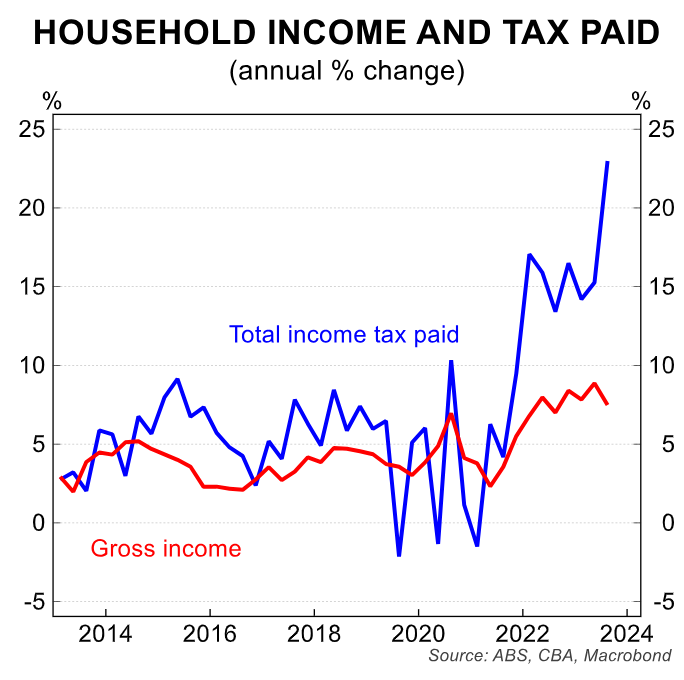
The divergence between income tax paid and incomes meant the share of aggregate household income lost in personal taxes soared to an equal record high 17.2% in September 2023:
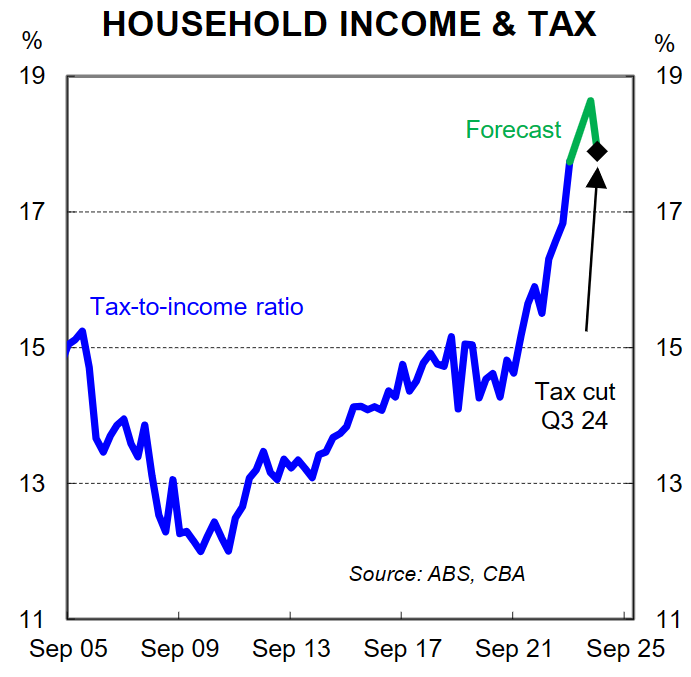
Worse, ever with the Stage 3 tax cuts, the share of income lost to personal taxes is forecast to be higher in Q3 2024, and would continue to rise as inflation drags households into higher tax brackets (i.e. “bracket creep”).
Of course, the rise in income taxes has occurred alongside the surge in mortgage repayments and rents, which combined are hammering households:
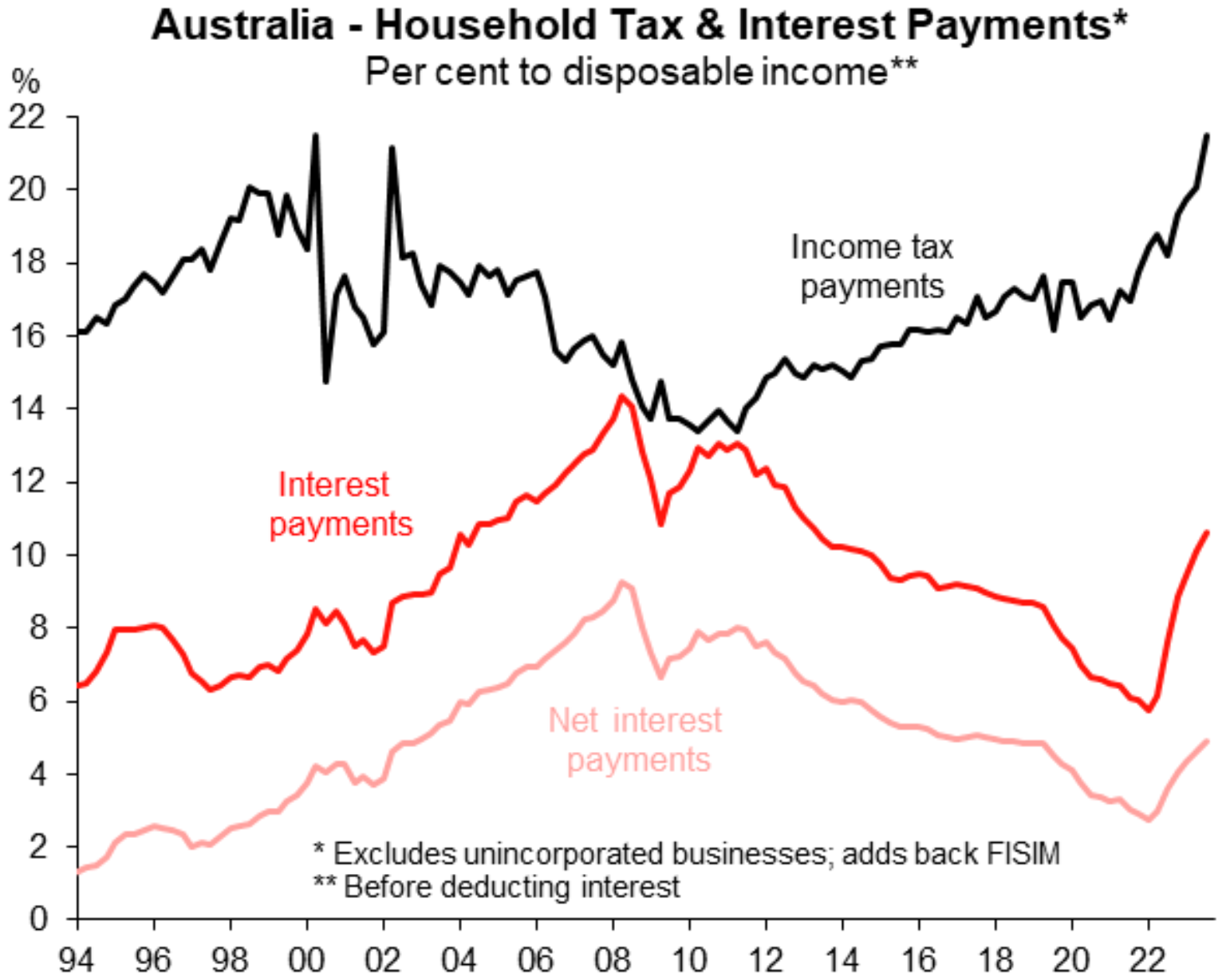
Source: Justin Fabo
This, in turn, has helped drive the record 6% decline in real household disposable incomes:
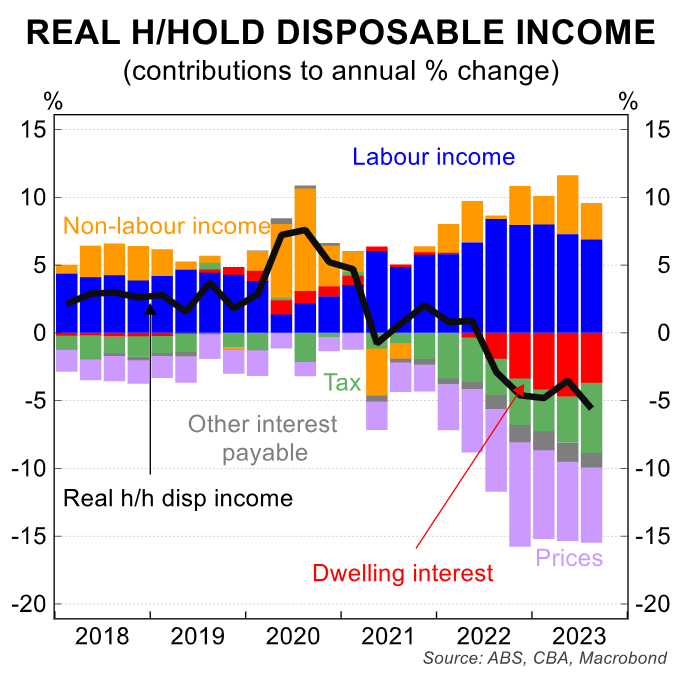
The big exceptions are home owning retirees, who have largely been insulated from the soaring mortgage repayments, rents and personal income taxes.
In turn, they spent like drunken sailors in the year to September, while everybody else cut back their spending in real terms:
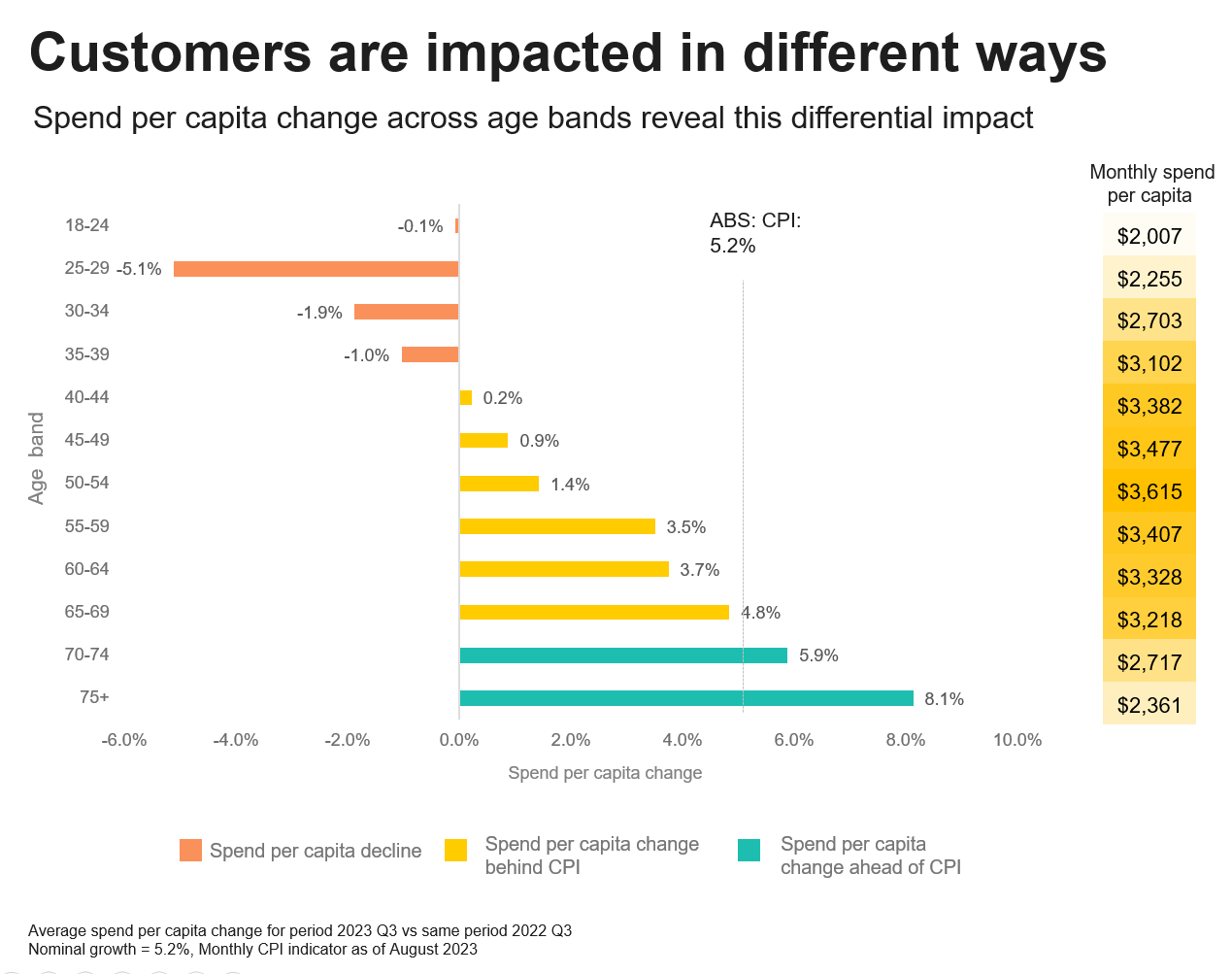
Source: CBA
It is unsustainable, inefficient, and inequitable for Australia’s tax system to be so reliant on a shrinking share of workers while the proportion of taxes coming from indirect sources (e.g., GST and fuel excise) declines.
This is especially true considering that the older generation is growing in size and paying less tax than ever before, despite holding the majority of the country’s wealth.
Australia desperately needs proper tax reform that broadens the base away from productive effort (taxing work) and towards more efficient sources such as resources, land, and consumption.

